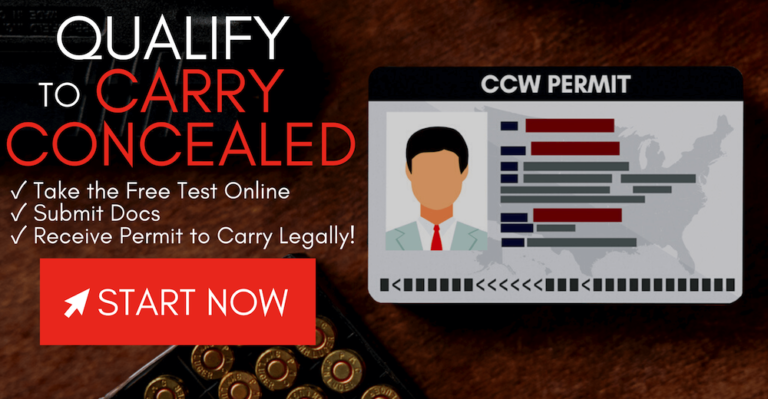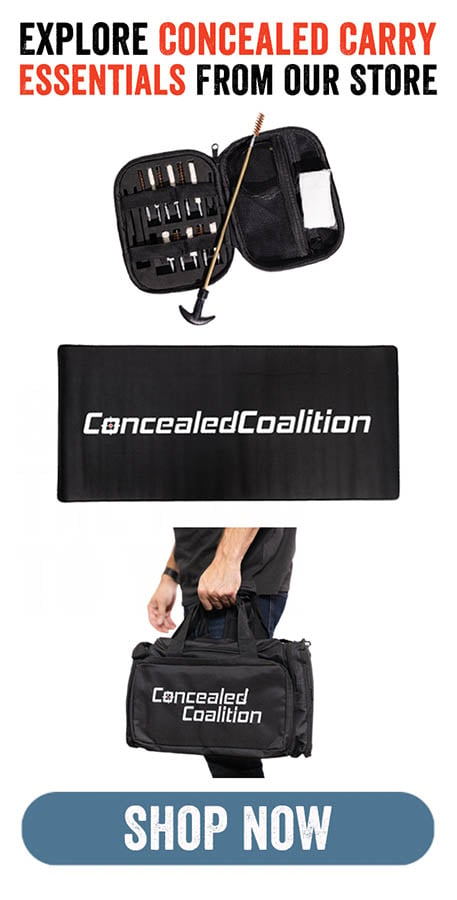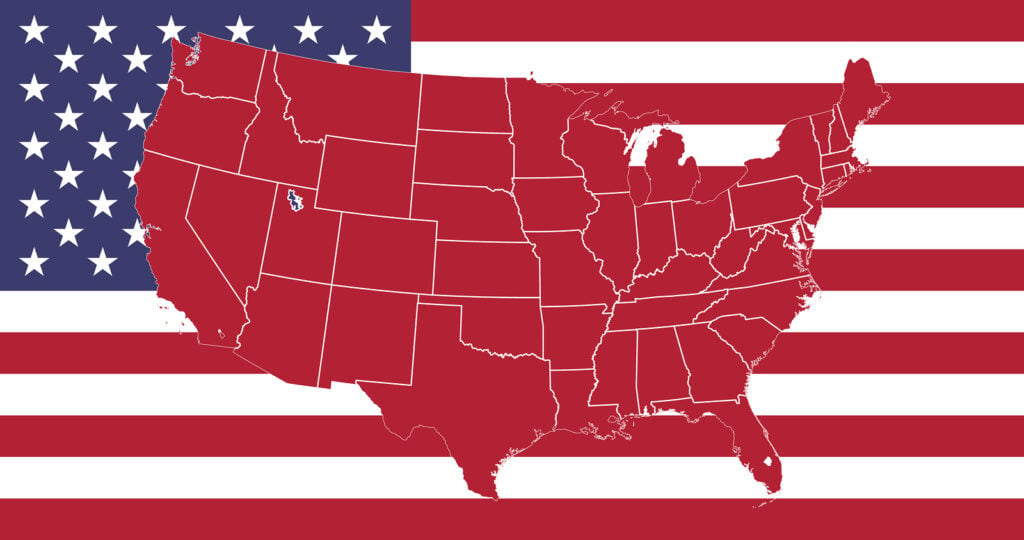If you’re looking for accurate, up-to-date information on concealed carry reciprocity agreements, the best place to start is Concealed Coalition’s interactive reciprocity map.
This tool lets you choose your home state and instantly see which other states recognize your concealed carry permit. It also includes detailed legal guidance tailored to your state’s laws.
Understanding reciprocity agreements is key to staying legally protected while traveling. In this guide, we’ll explain what reciprocity means, how it works across states, and why tools like Concealed Coalition’s map are the most reliable way to stay informed.
What Are Concealed Carry Reciprocity Agreements?
Concealed carry reciprocity agreements are formal or informal understandings between U.S. states that allow a person with a valid concealed carry permit in one state to legally carry a concealed firearm in another.
But here’s the catch: not all states honor each other’s permits. Even among those that do, the rules often vary.
Key Facts:
- Reciprocity agreements differ by state.
- Some states only honor permits from certain states.
- Other states may impose additional restrictions (like age or training hours).
- Laws change often, and misunderstandings can lead to legal trouble.
That’s why having a dependable source of information on concealed carry reciprocity agreements is essential.
Why Reciprocity Matters for Responsible Gun Owners
If you plan to travel across state lines with your firearm, it’s your responsibility to know whether your permit is valid in that destination. Many gun owners assume reciprocity is automatic, but that’s not the case.
Failing to check reciprocity can lead to serious legal consequences, including fines, arrest, or even revocation of your concealed carry license.
Whether you’re traveling for work or vacation, or moving to a new state, knowing which states honor your permit can save you from stress, penalties, and confusion.
Where to Find Accurate Information on Concealed Carry Reciprocity Agreements
There are several resources available for gun owners to check information on concealed carry reciprocity agreements. These include:
1. Concealed Coalition Reciprocity Map Tool
Your best and most convenient source is the Concealed Coalition Reciprocity Map. This interactive tool allows you to:
- Select your issuing state
- Instantly view which other states recognize your permit
- Access state-specific legal details on concealed carry rules, prohibited areas, use-of-force laws, and more
Once you choose your state, you’re taken to a customized legal guide, making it easier to stay informed and compliant. This tool is regularly updated to reflect changing laws, and it’s free to use.
2. Your State’s Official Website
Each state has its own concealed carry licensing authority — usually the Department of Public Safety, Attorney General’s Office, or State Police. These sites often publish reciprocity agreements, firearm laws, and permit requirements.
However, these government pages can be difficult to navigate, which is why Concealed Coalition consolidates that information into a user-friendly format.
What Factors Affect Reciprocity Between States?
Understanding reciprocity agreements involves more than just looking at a map. States consider several factors before honoring an out-of-state permit:
Permit Type
Some states differentiate between resident and non-resident permits. A few states only recognize resident permits from other jurisdictions.
Age Requirements
States may require concealed carry permit holders to meet minimum age thresholds — typically 21 years, but sometimes 18.
Training Standards
If your home state has minimal training requirements, another state may refuse to recognize your permit.
Criminal Background Checks
States generally won’t honor permits from jurisdictions with looser background check policies.
State Law Compatibility
States evaluate whether another state’s concealed carry laws align with their own. If not, they may decline reciprocity.
How to Use Concealed Coalition’s Reciprocity Map Effectively
To get the most from the reciprocity map, follow these steps:
- Visit our Reciprocity Maps page
- Click on your home state
- Review the interactive map showing which states recognize your permit
- Scroll to view in-depth legal information for your state
- Check for updates before every trip — laws can change without much warning
The map is especially useful for:
- Vacation planning
- Cross-country travel
- Long-haul trucking
- Multi-state business trips
- RV life or vanlife communities
Can Non-Residents Carry in Your State?
Some states issue non-resident concealed carry permits. These may be available to people who frequently travel through the state or own property there.
However, rules differ. Some states:
- Allow concealed carry only to residents
- Offer non-resident permits but require in-person training
- Recognize only certain states’ permits
Again, Concealed Coalition’s state pages help you sort this out quickly.
Want to Learn More About Firearms Law and Safety?
In addition to the reciprocity map, Concealed Coalition offers concealed carry permit certification and access to Concealed Coalition University (CCU), a video-based home defense curriculum.
Concealed Coalition University Includes:
- Home defense training videos
- Live coaching webinars
- Legal use-of-force insights
- Real-world situational examples
Whether you carry daily or are new to firearms, CCU helps sharpen your awareness, preparedness, and confidence. It’s also a great supplement to reciprocity info — especially if you’re interested in home protection.
🎥 You can also check out this webinar replay:
https://www.youtube.com/watch?v=WUR45-iidz0
Essential Tips for Traveling with a Firearm
- Check reciprocity laws before you travel: Ensure your firearm permit is recognized in your destination state.
- Follow federal and state transportation laws: Properly store your firearm to comply with all regulations.
- Steer clear of restricted areas: Avoid carrying firearms in prohibited locations such as schools or government buildings.
- Be aware of magazine capacity and ammunition restrictions: Understand the specific rules for each state you visit.
- Learn the use-of-force laws: Familiarize yourself with the self-defense and firearm usage laws in every state on your itinerary.
Final Thoughts: Stay Legal, Stay Informed
If you carry concealed, you must know where your permit is recognized — and where it’s not. Relying on assumptions or secondhand advice can get you into serious legal trouble.
Use the Concealed Coalition Reciprocity Map to get clear answers in seconds. And if you’re ready to start your concealed carry training and certification, check out the online and/or in-person training options available for your state.
Start Here:
🔹 Get Concealed Carry Certified
By staying informed and using the right tools, you’re not just protecting your right to carry — you’re protecting your future.




